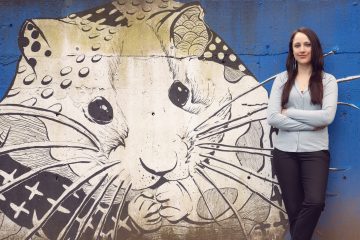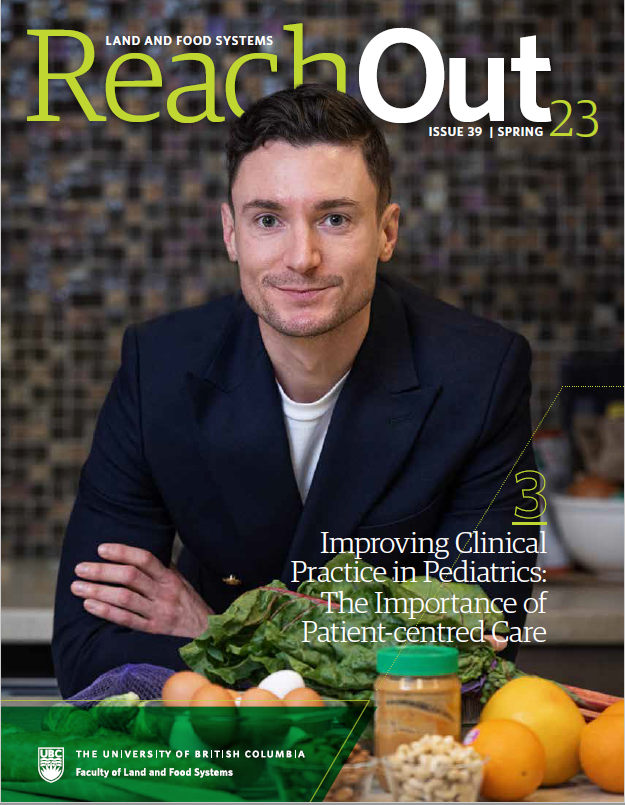Developing Wildlife Welfare Policy Throughout the Province

Bsc/MSc Applied Animal Biology
May 11, 2023 – Alumna Erin A. Ryan’s (BSc/MSc Applied Animal Biology) career sits at the intersection of science, community, and social good. From developing wildlife welfare policy to furthering Equity, Diversity, and Reconciliation in her field, Ryan’s work is multi-faceted and wide-reaching.
Ryan’s family history with the Faculty spans generations. She first learned of the Applied Biology program in 2008, when she attended a ceremony where her grandfather received an LFS Centenary Award for his outstanding achievements as an alumni. Celebrated LFS alumnus Len Marchand (BSc Agriculture 1958) had a groundbreaking career in politics as the first person of Indigenous status to serve as a Member of Parliament, but Ryan thinks of her grandfather as a scientist at heart.
“He was so proud I was going to UBC,” Ryan said. “And especially because I would be an Aggie like him.”
In the Applied Biology program, Ryan discovered her professional calling in the science of animal welfare. She currently works at the B.C. Society for the Prevention of Cruelty to Animals (BC SPCA) as a Specialist in Wild Animal Welfare.
Ryan’s initial focus was on urban wildlife, but she now works on provincial wildlife welfare initiatives that focus on public communication and advocacy. Ryan translates research and best practices into clear and actionable statements for implementation.
From her experience working for the BC SPCA, Ryan found a gap in the published research. There was a good body of research in humane control for most wildlife, but for mice and rats, research was mostly focussed on selecting the least harmful option of removal. Ryan wanted to find practices that actively considered humaneness instead and decided to pursue a master’s degree, which she completed in 2021.

Ryan describes her return to LFS as a homecoming, and her research on more humane pest control has actively shifted provincial policy. While defending her thesis, Ryan and fellow
alumna Dr. Sara Dubois (PhD Applied Animal Biology 2014) were consulted by the provincial government to help inform new regulations on rodenticides and pest control.
The province made the first set of temporary restrictions in July 2021, banning the non-essential use of Second-Generation Anticoagulant Rodenticides (SGARs), which are the most potent rodenticides and cause secondary poisoning for hawks, coyotes, and other predators. In January this year, the restrictions were made permanent. Along with restricting the sale of SGARs, these changes led to more proactive solutions that targeted the root cause of rodent infestations.
Ryan’s goal as a science communicator is to create policy that reflects all aspects of welfare, including those affected by systemic and societal biases. In 2020, Ryan joined the new BC SPCA Equity, Diversity, and Reconciliation working group, formed as a response to increased public attention on reconciliation.
Members vary by location throughout the province, to ensure that welfare concerns and communications are not limited to urban centres or any particular region. In the three years since
its inception, Ryan has worked with the group to publish their Foundational Principles for Equity, Diversity, and Reconciliation. The increased public attention has given Ryan hope.
“People are listening now,” Ryan said. “They won’t stand for lip service anymore, and organizations are trying to make meaningful change. This work is just beginning.”
Tagged with: 2023, Alumni, Animal Welfare Program
